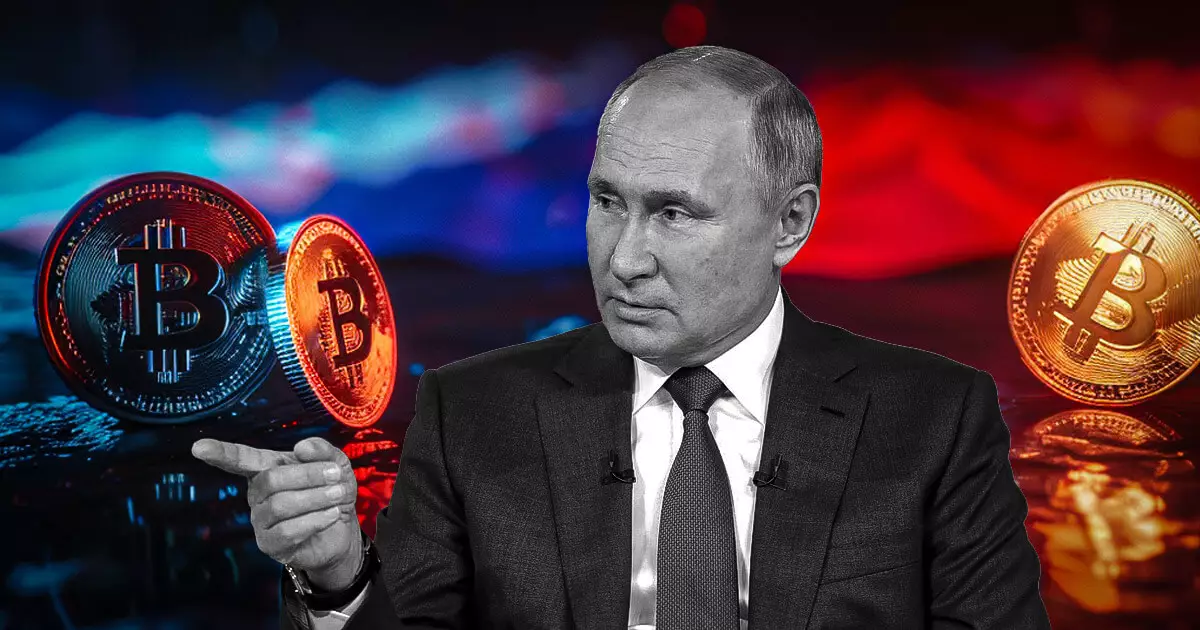In a world increasingly burdened by economic and political turmoil, Russian President Vladimir Putin’s recent remarks regarding Bitcoin (BTC) and digital currencies hold significant implications. At the Investment Forum in Moscow on December 4, he boldly claimed that digital currencies are “unstoppable” and that they can revolutionize the global financial landscape by decreasing inefficiencies and elevating economic resilience. By suggesting that Bitcoin could act as a potential reserve asset against the US dollar, Putin’s statements signal a shift in how cryptocurrencies might be perceived and utilized on a global scale.
Putin’s critique of the US dollar hearkens back to the ongoing debate about financial hegemony. He articulated concerns regarding the United States leveraging its currency supremacy to enforce political agendas, essentially punishing nations that do not align with its interests. This criticism gained traction with real-world examples, such as the $300 billion in Russian assets frozen in Western financial institutions following the onset of the Ukraine conflict in 2022. Such actions have galvanized interest in alternative currencies like Bitcoin, which are less susceptible to geopolitical maneuvering.
The timing of Putin’s statements coincides with a pivotal legal framework being established in Russia. The newly enacted law that classifies cryptocurrencies as property represents Russia’s intention to create a conducive environment for digital financial technologies. This legislation not only provides tax benefits for transactions made through digital channels but also aims to exempt crypto mining from value-added tax (VAT). This legal endorsement is more than just a move toward modernization; it serves as a strategic effort to navigate external economic pressures and sanctions.
The ongoing conflict in Ukraine has cast a spotlight on the potential of cryptocurrencies to facilitate financial transactions amidst war and chaos. Digital currencies have become essential tools for individuals caught in the crossfire, allowing them to transfer funds without the interference of traditional banking systems hampered by sanctions. This decentralized capability reaffirms the notion that cryptocurrencies can provide financial lifelines during crises, undermining the effectiveness of existing economic sanctions.
In discussions at various international gatherings, such as the BRICS summit, the momentum behind digital currencies has been palpable. Participants have explored the possibilities for using digital currencies to facilitate cross-border payments, indicating a collective desire to challenge the status quo of existing financial systems. This newfound openness towards digital assets highlights a broader trend where countries seek to establish alternative economic frameworks less reliant on Western-dominated systems.
Putin’s advocacy for Bitcoin stands in stark contrast to developments in the U.S., where regulatory discourse has shifted towards a more welcoming stance for cryptocurrencies. The impending administration’s potential endorsement of Bitcoin—suggested via a proposed national Bitcoin reserve—illustrates the differing approaches to digital currencies. As the United States looks to create a friendlier regulatory environment for the burgeoning crypto market, other nations may feel incentivized to adopt their version of innovative financial solutions, setting the stage for a dynamic global economic landscape.
Putin’s remarks affirm a growing recognition of digital currencies and their potential role in the future of global finance. As countries navigate the complexities of geopolitical rivalries and financial sovereignty, Bitcoin may increasingly serve as both a refuge and a tool for empowerment within the evolving economic order.

